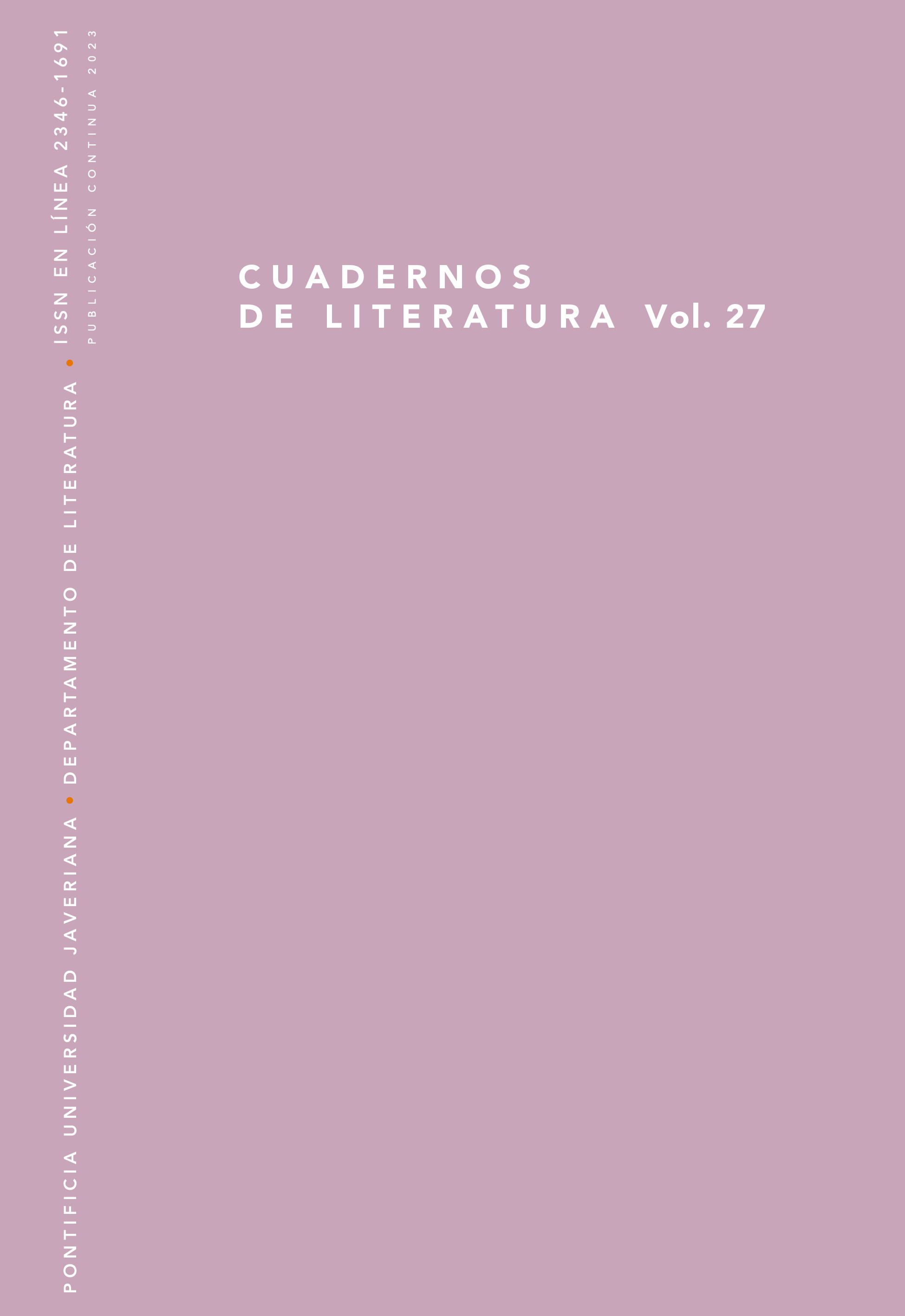Resumen
A pesar de que la hibridez se encuentra en la esencia de la cubanidad, los discursos que construyen la identidad cubana han marginalizado e incluso excluido el componente asiático, perpetuando la visión de orientalismo de Said. Sin embargo, distintos trabajos literarios ocuparían el lugar del discurso para (re)pensar esa posición, basándose en la integración y la inclusión de ese componente previamente exotizado. En este artículo se examina si las obras literarias de Cristina García, Monkey Hunting (2003), y de Daína Chaviano, La isla de los amores infinitos (2006), permiten descubrir esa nueva perspectiva para la construcción de la cubanidad, analizando si la presencia del componente asiático forma parte integral del discurso, explorando su proceso de exilio y de aculturación.
Berry, John Widdup. “Acculturative Stress”. Readings in ethnic psychology, editado por Pamela Balla, Kevin Chun y Gerardo Marín, Routledge, 1998, pp. 117-122.
Berry, John Widdup y D. Sam. “Acculturation and adaptation.”. Handbook of cross-cultural psychology: Social behavior and applications, editado por John Widdup Berry, M. H. Seagull y C. Kagitçibasi, vol. 3, Allyn and Bacon, 1997, pp. 291-326.
Bhabha, Homi K. The location of culture. 1994. Routledge, 2004.
Bourdieu, Pierre. Language and Symbolic Power. Harvard University Press, 1991.
Chaviano, Daína. La isla de los amores infinitos. Grijalbo, 2006.
Chuffat Latour, Antonio. Apunte histórico de los chinos en Cuba. Molina y Cia., 1927.
Foucault, Michel. El orden del discurso. Traducido por Alberto González Trovano. Editorial Tusquets, 1993.
García, Cristina. Monkey Hunting. Alfred A. Knopf, 2003.
Hall, Stuart. “Cultural identity and Diaspora”. Identity. Community, Culture, Difference, editado por Jonathan Rutherford y Lawrence Whishart, 1990, pp. 222-237.
---. “Who needs identity?”. Questioning cultural identity, editado por Stuart Hall y Paul du Gay, Sage, 2003 [1996], pp. 1-17.
Hume, David. A Treatise of Human Nature. 1739. E-book, The Project Gutenberg, 2010. https://www.gutenberg.org/files/4705/4705-h/4705-h.htm
Hu-DeHart, Evelyn. “Chinese Coolie Labour in Cuba in the Nineteenth Century: Free Labour or Neo-slavery?”. Slavery and abolition, vol. 14, núm. 1, 1993, pp. 67-86. https://doi.org/10.1080/01440399308575084
---. “Multiculturalism in Latin American Studies: Locating the ‘Asian’ Immigrant; or, where are the Chinos and Turcos?”. Latin American Research Review, vol. 44, núm. 2, 2010, pp. 235-242.
Knight, Franklin. Slave Society in Cuba during the nineteenth century. University of Wisconsin Press, 1970.
Krapp, George Philip. “The Psychology of Dialect writing”. The Bookinan, vol. 63, December-February, 1926, pp. 522-527.
Kushigian, Julia A. Orientalism in the Hispanic Literary Tradition. In dialogue with Borges, Paz and Sarduy. University of New Mexico Press, 1991.
Lacan, Jacques. Écrits. Seuil, 1966.
Locke, John. (2015), Of identity and diversity. Concerning Human Understanding. 1690. The Project Gutenberg, 2015.
López, Kathleen. Chinese Cubans. A Transnational History. The University of North Carolina Press, 2013.
Martí, José. “Funeral Chino”. Obras completas, vol. 2. Ediciones Martianas, 1964.
Ortiz, Fernando. Contrapunteo cubano del tabaco y del azúcar. 1940. Cátedra, 2002.
Pratt, Mary Louise. “Arts of the Contact Zone”. Profession, vol. 91, 1991, pp. 33-40.
Pérez de la Riva, Juan y Pedro Deschamps Chapeux. Contribución a la historia de la gente sin historia. Editorial de Ciencias Sociales, 1971.
Rama, Ángel. Rubén Dario y el modernismo: (circunstancia socioeconómica de un arte americano). Ediciones de la Biblioteca, Universidad Central de Venezuela, 1970.
Said, Edward. Orientalism. Pantheon Books, 1978.
Sarduy, Severo. De dónde son los cantantes. Seix Barral, 1980.
Scherer, Frank. “Sanfancón: Orientalism, Self-Orientalization and ‘Chinese religion in Cuba’”. Nation Dance: Religion, Identity and Cultural Difference, editado por Patrick Taylor, Indiana University Press, 2001, pp. 153-170.
Soja, Edward. Thirdspace. Journeys to Los Angeles and other Real-and-Imagined Places. Malden, Blackwell, 1996.
Tinajero, Araceli. Orientalismo en el modernismo hispanoamericano. Purdue University Press, 2004.
Yun, Lisa. The coolie speaks. Chinese indentured labour and African Slaves in Cuba. Temple University Press, 2008.

Esta obra está bajo una licencia internacional Creative Commons Atribución 4.0.
Derechos de autor 2024 Maite Villoria Nolla


